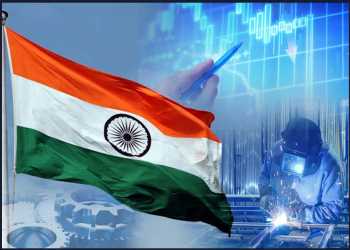
India Economy Expands 8.4% In September Qtr
India’s economic growth remained robust in the September quarter, preliminary data from the government showed Tuesday, after the pace of expansion hit a record in the previous three months boosted by a low base-effect due to the coronavirus pandemic last year.
Gross domestic product grew 8.4 percent year-on-year in the three months to September, the statistics ministry said. That was in line with economists’ expectations.
In the same quarter of 2020, the economy had contracted 7.4 percent as the coronavirus ravaged economic activity across the country.
In the April to June quarter this year, the economy grew a record 20.1 percent versus a 24.4 percent contraction in the same period last year when the government imposed one of the most severe lockdowns to curb the spread of the Covid-19 pandemic.
The gross value added increased 8.5 percent year-on-year in the September quarter.
The latest surge in growth is in tandem with the pick up in economic activity as public confidence was boosted by relaxation of restrictions, thanks to a sharp fall in new infections and increased vaccination.
Citing its own calculations, Capital Economics said the Indian economy grew by around 12 percent from the previous quarter, underpinned by a strong rebound in household consumption and investment.
The firm estimated that GDP recovered all its losses from the second wave and was a touch above its pre-virus level last quarter.
However, the recovery has entered a slower phase as recent data suggest that the reopening boost faded, Capital Economics said.
Supply bottlenecks including the global semiconductor shortage that has weighed on vehicle production, and coal shortages are likely to have taken a toll on industry this quarter, Capital Economics economist Shilan Shah said.
Shah said the downside risks are rising and, with vaccination coverage still very low, there remains a risk of renewed virus outbreaks.
“The new Omicron strain of the virus detected in southern Africa could end up being the factor that crystallizes these concerns if it reaches India,” the economist said.
“Given the downside risks, it seems highly likely to us that the RBI will keep policy accommodative for a while longer yet.”
Source: Read Full Article